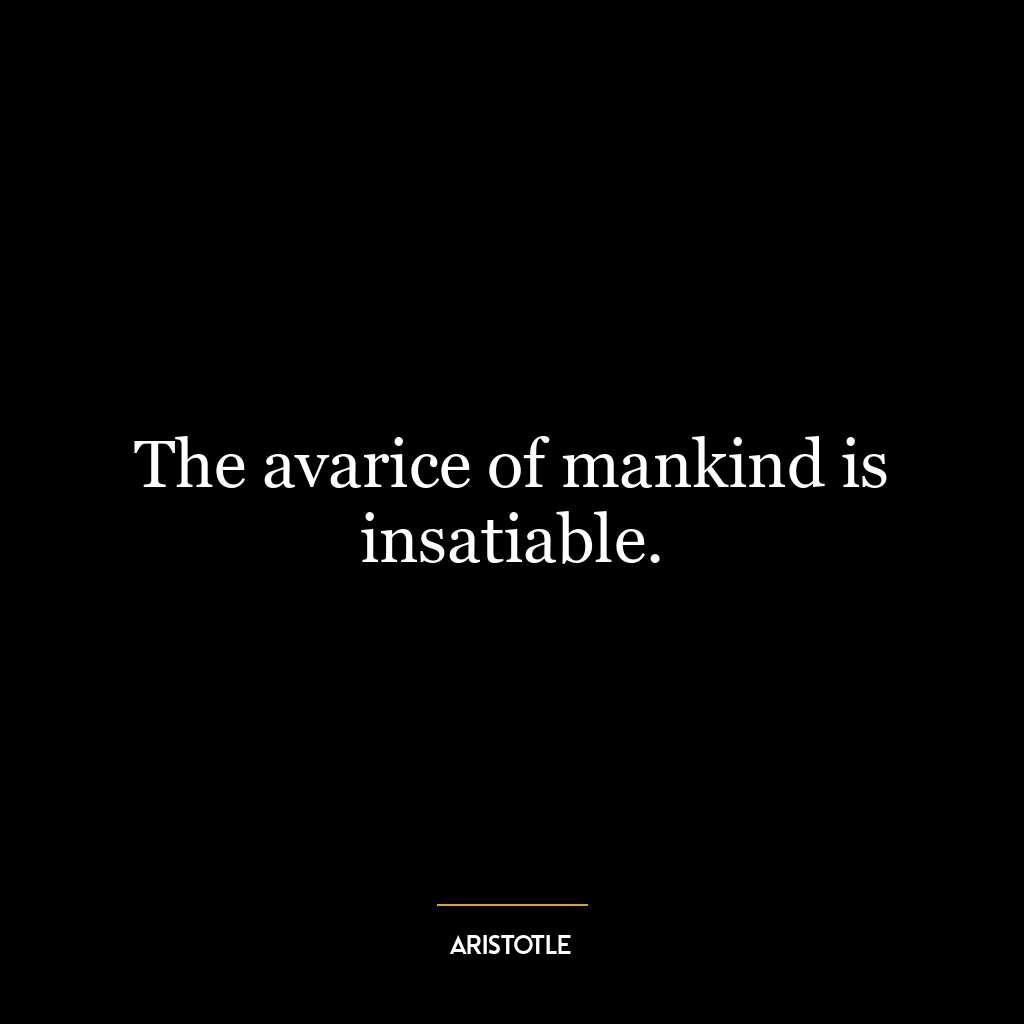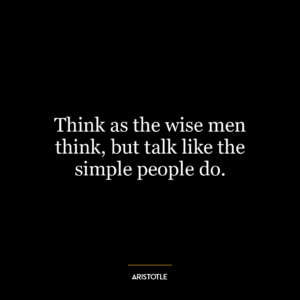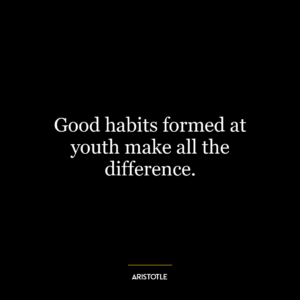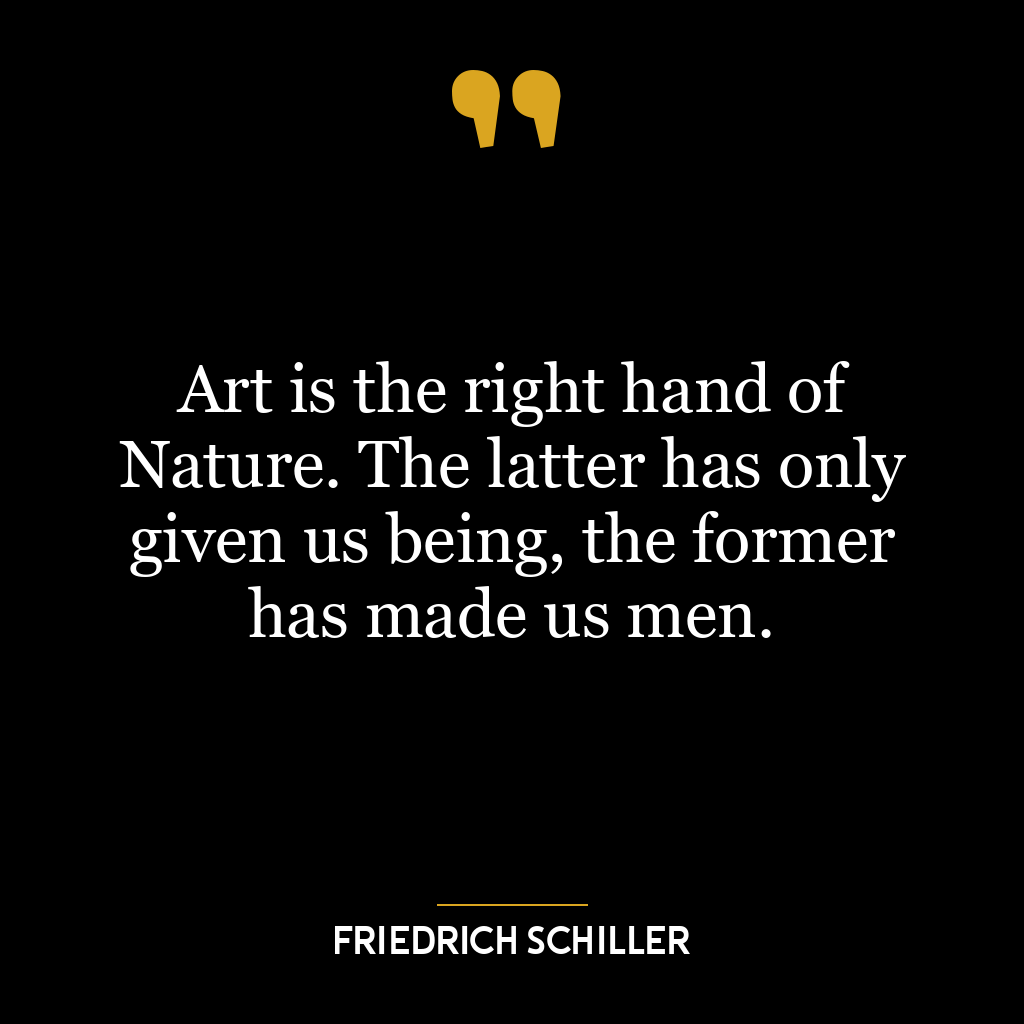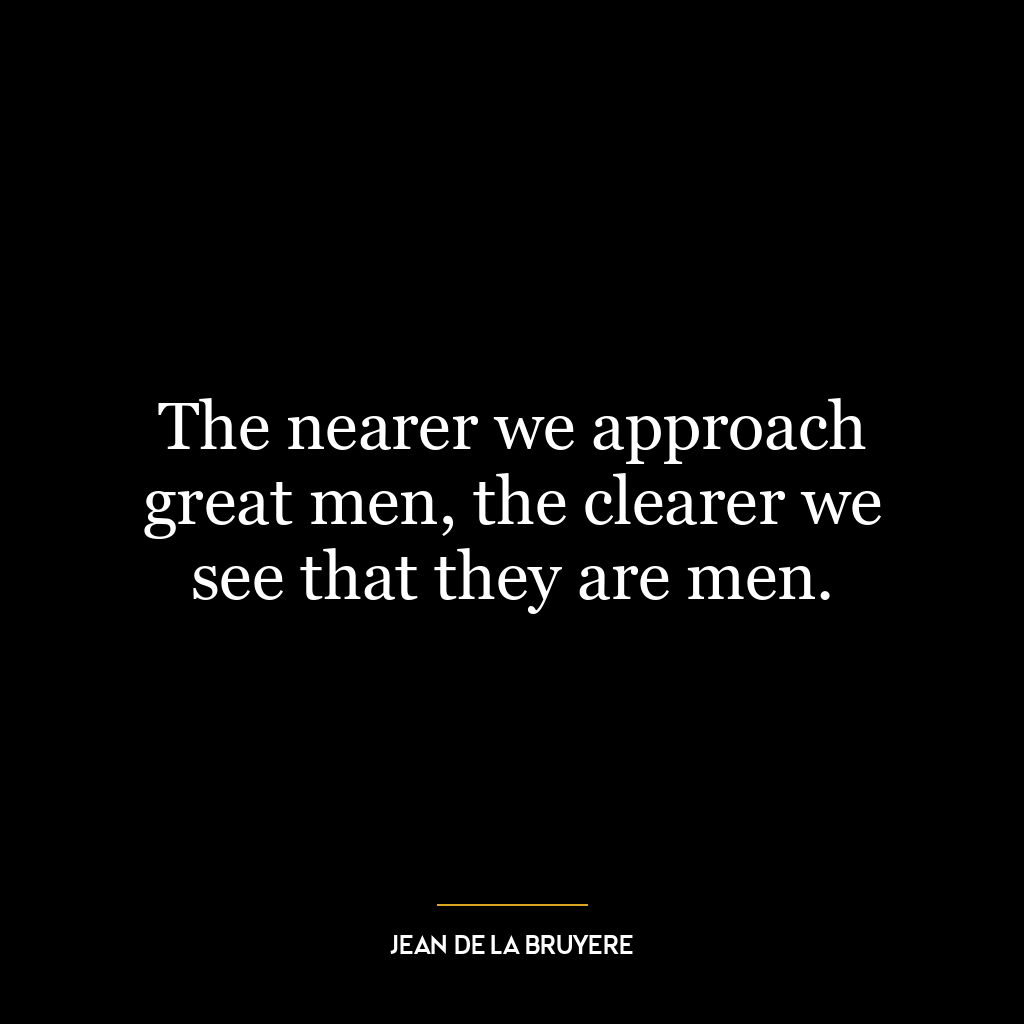This quote, “The avarice of mankind is insatiable,” essentially implies that human greed is limitless and unquenchable. It is a reflection on human nature, suggesting that people are perpetually dissatisfied with what they have and are always striving for more. This endless desire for more, according to this quote, is not because of necessity, but due to avarice, which is an extreme form of greed for wealth or material gain.
In terms of depth, this quote could be seen as a commentary on how human desires are often not rooted in need, but in want. This is a distinction that is critical to understanding the concept of avarice. Need is about survival and sustenance, while want is about accumulation beyond necessity. Avarice, then, is an exaggeration of this want, a desire that is never satisfied no matter how much one accumulates.
In today’s world, this idea is more relevant than ever. In an age of consumerism where the latest gadgets, fashion, and trends are constantly being marketed to us, it’s easy to fall into a cycle of endless wanting. This can lead to a sense of dissatisfaction and unhappiness, as our desires are always outpacing our ability to satisfy them.
From a personal development perspective, understanding this concept can be a key to achieving contentment and fulfillment. It’s about recognizing the difference between needs and wants, and being mindful of when desire becomes avarice. It’s about learning to appreciate what we have, rather than constantly striving for more. It’s about understanding that true happiness comes not from material wealth, but from inner peace and contentment.
Finally, this quote is a call to introspection, a reminder to question our desires and to reflect on whether they are driven by genuine need or insatiable greed. It encourages us to strive for balance, to seek wealth and prosperity, but not at the expense of our contentment and peace.

